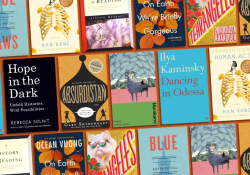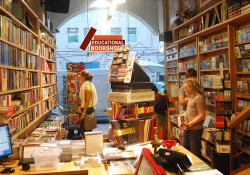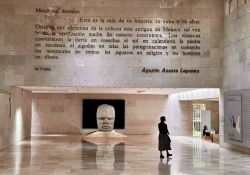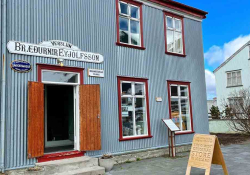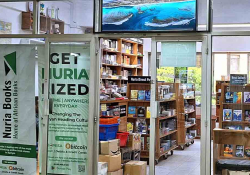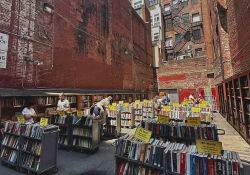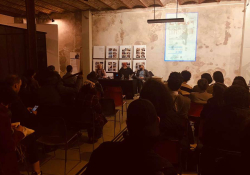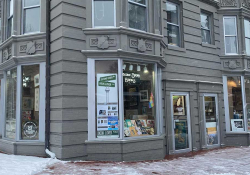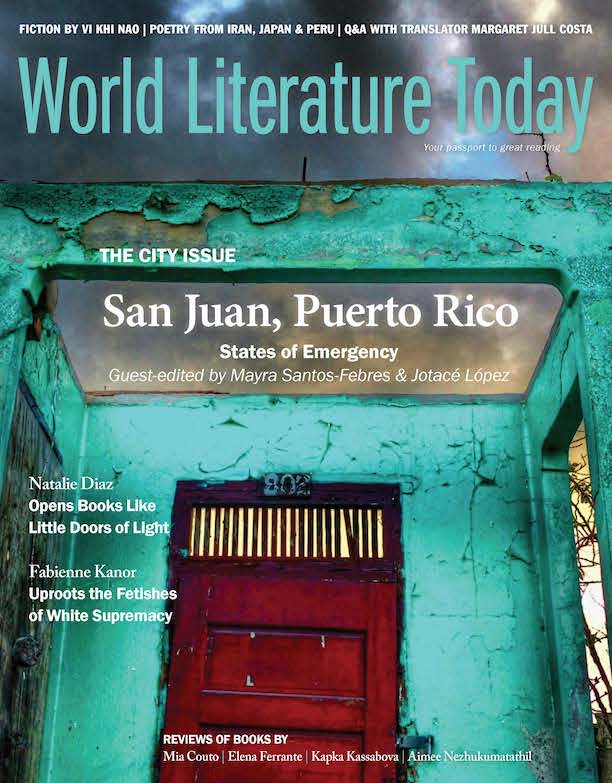Pittsburgh’s August Wilson African American Cultural Center
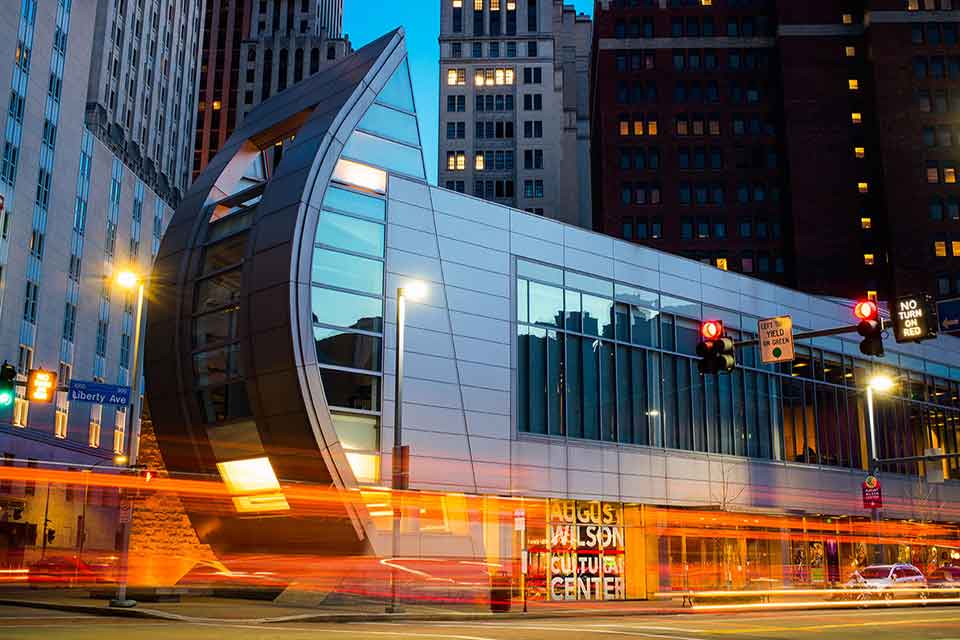
LOCATED IN THE HEART of downtown Pittsburgh, on Liberty Avenue close to Union Station and the David Lawrence Convention Center, the sleek and elegant but unpretentious August Wilson African American Cultural Center (awaacc) cannot fail to capture the eye and the imagination of anybody who is visiting Pittsburgh or, for that matter, of anybody who lives in the city. This crucial cultural resource—which is at least as crucial as Pittsburgh’s vaunted Warhol Museum, Heinz History Center, or the Carnegie Museums—is named for the Pulitzer Prize–winning author of the “Pittsburgh Cycle”: a collection of ten plays, each of which chronicles one decade in the twentieth century as experienced by the “every” women and men who make up the Black community. Wilson’s dialogue-driven plays are set in diners, backyards, living rooms, and other intimate and domestic spaces. It was Wilson’s expressed aim to provide a literary forum in which Black voices spoke on their own terms and in a sovereign way. The August Wilson Center also pledges to this dignity and sovereignty.
Established in 2009, the August Wilson Center is relatively new, indicating the unfortunate belatedness with which wider society sometimes awakens to the expressive riches that issue from the margins and that, as Nigerian American essayist and novelist Okey Ndibe has put it, are necessarily “more humane” and inimitable because of that fact. The center features plays, performances, and other events that showcase the American sociocultural landscape as experienced and expressed by Black American artists and intellectuals. Every year, the center stages at least one play by August Wilson as well as dramatic pieces by other playwrights. In addition to the main theater, the center also houses art galleries that are free and open to the public. These gallery spaces showcase the works of installation artists, painters, and photographers that speak to the mission of the center in some way. For example, the center held an exhibit on the paintings of Romare Bearden, the artist who, according to Wilson’s 2004 interview in the Paris Review, furnished Wilson with some of the motifs and sensibilities in a number of his plays. The August Wilson Center is also an indispensable co-curricular resource for Pittsburgh’s many universities, Duquesne, Pitt, and Carnegie Mellon University among them.
A living cultural signifier, the August Wilson Center not only preserves and celebrates but also champions Black culture writ large. While anchored to local places, histories, and perspectives—meaning Pittsburgh’s Hill District—the center also promotes and hosts the interconnectivity of Black lives, consciousness, and expression in the larger global Black community, the African diaspora. Like the purview of Wilson’s plays, the center affirms the relationship between the intensely local and the larger diasporic experience of blackness.
The August Wilson Center is not to be mistaken for the August Wilson House, which is located in the historic Hill District of Pittsburgh, the site of Wilson’s boyhood home, which is adjacent to downtown. Also consider seeing a Teenie Harris exhibit, Pittsburgh’s beloved photographer who captured everyday Black life in Wilson’s Hill District neighborhood especially but who also celebrated those moments that are enshrined in Black collective memory: the iconography of the Negro Homestead Grays Baseball players, Roberto Clemente, Mohammad Ali, the jazz greats of the Hill, etc.
In its bid to move Black expression from the margins to the center, the August Wilson Center illustrates how important it is to recognize Black experience as integral to the American experience and not as footnote or an addendum. Pittsburgh will look, feel, and recall itself differently to anyone who comes here for a visit.
Duquesne University

